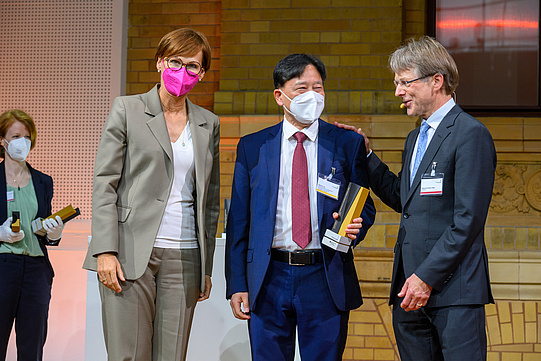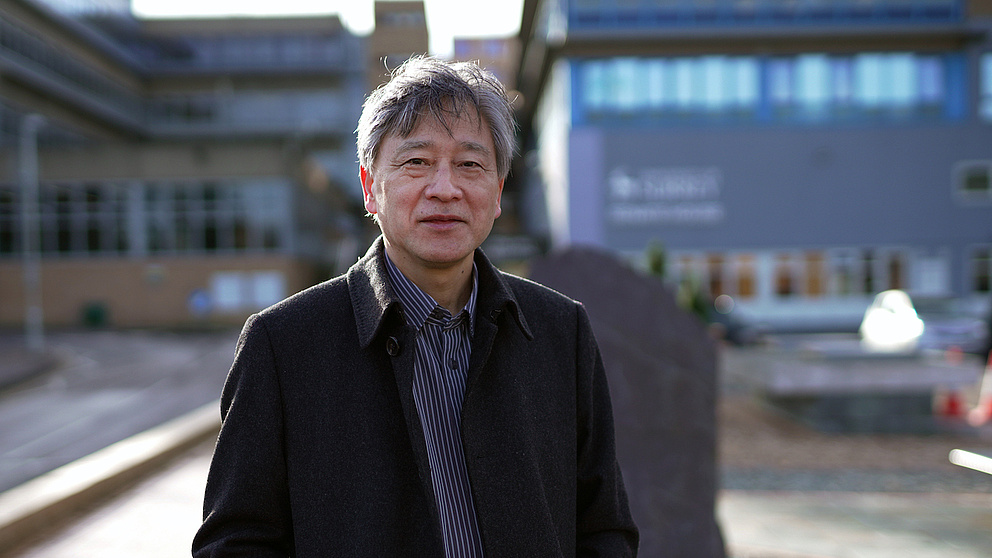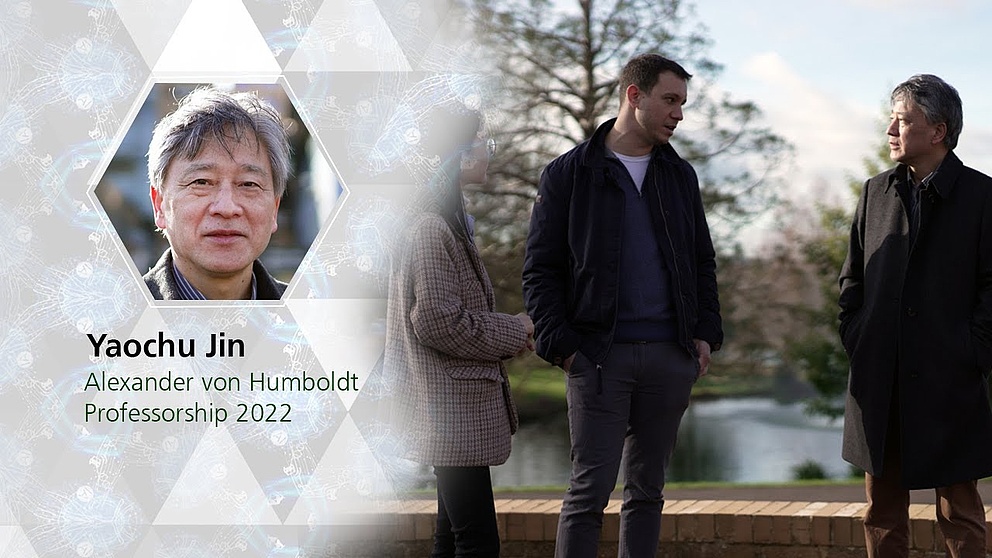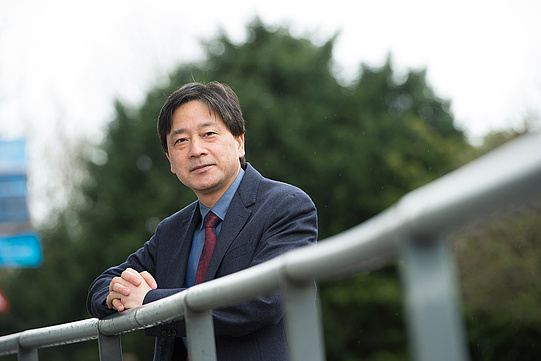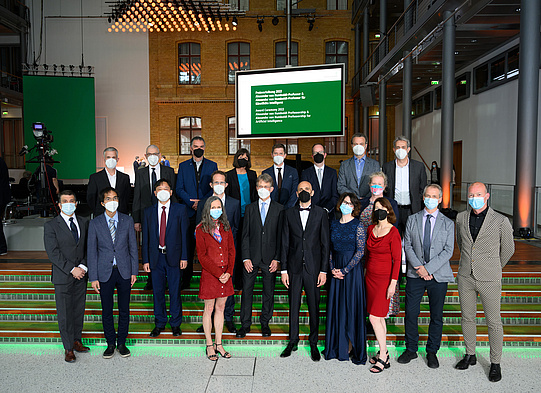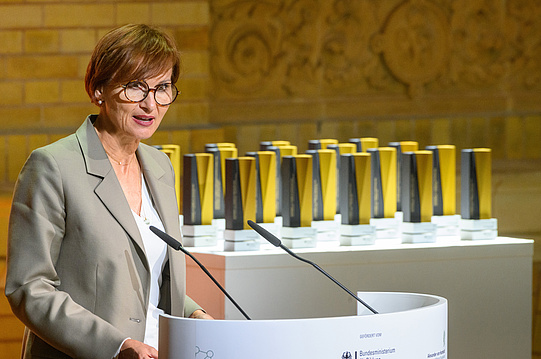Jump to the content
- {{#headlines}}
- {{title}} {{/headlines}}

Contact
Press, Communications and Marketing
Tel.: +49 228 833-144
Fax: +49 228 833-441
presse[at]avh.de
Artifical intelligence, image and language processing
Computational intelligence (CI, also known as soft computing or natural computing) is a pillar of AI. Computational intelligence is based on mathematical approximation methods which allow capabilities of human understanding and other basic principles of nature to be mimicked. In contrast to Boolean algebra, which is restricted to 0 or 1, black or white, that is, to true or false, computational intelligence methods tolerate uncertainty, fuzziness and half-truths. They also reproduce restrictions of natural language like “very”, “almost” and “approximately” mathematically. The grey areas that exist in the real world can thus be processed and simulated. Various computational intelligence methods are already being used in household devices and in industry today – for example, in washing machines that decide on the length of the washing cycle in accordance with how dirty the laundry is.
Yaochu Jin has conducted pathbreaking work in a sub-area of CI, evolution strategies, which harnesses the mechanisms of evolution in nature for technical processes. He developed, for instance, the reference vector guided evolutionary algorithm (RVEA) for many-objective optimisation problems. This class of algorithm is used in contexts such as the automotive industry when the weight of the individual components of a car, the sheet thickness and the petrol consumption can be reduced without having to run a huge number of expensive simulations whilst still meeting the demands on the safety of the bodywork. Because although evolution takes generations to optimise a species, this process can be achieved in fractions of a second using modern computer technology.
In Bielefeld it is expected that Yaochu Jin’s research on evolutionary algorithms will lead to progress in the use of swarm robots in hospital routines. In healthcare today already, as well as in industry, robots are used to assist humans. But their actions are restricted and have to be programmed in advance. In the future, it is conceivable that whole swarms of robots could be employed who, thanks to evolutionary algorithms based on biological models from nature, could align themselves, self-organise, develop and communicate with one another.
Brief bio
Born in China, Professor Dr Yaochu Jin began his academic career at Zhejiang University where he became an associate professor after completing his doctorate in 1996. Following research stays at Ruhr-Universität Bochum and the State University of New Jersey, United States, starting in 1999, he has been conducting research projects funded by Honda R&D Europe. He spent three years working at Bielefeld University’s CoR Lab before becoming a professor at the University of Surrey, United Kingdom, in 2010. For three years, he was also Finland Distinguished Professor at the University of Jyväskylä, Finland. Jin has received multiple awards for his research, such as five Outstanding Paper Awards from the IEEE Computational Intelligence Society. In November 2015, he was named an IEEE Fellow for his contributions to evolutionary optimisation.
Photos and videos
